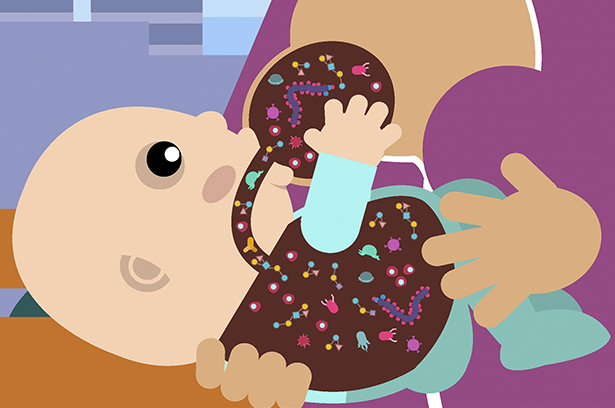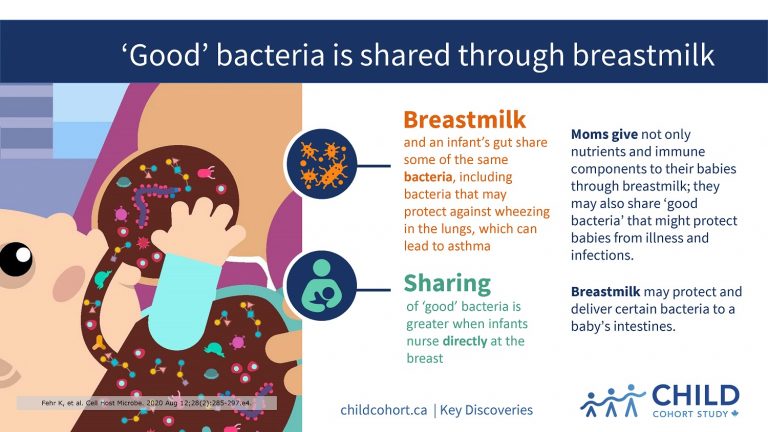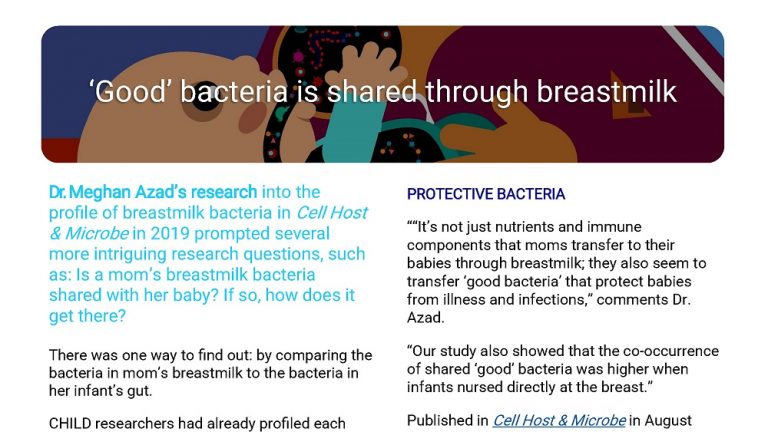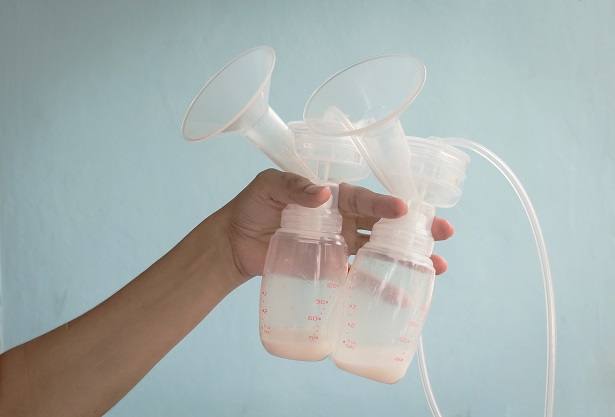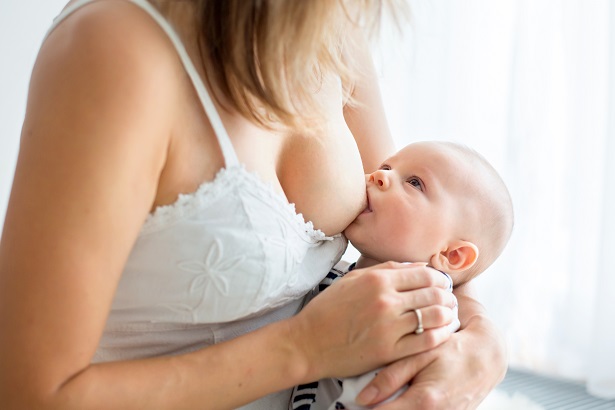'Good' bacteria is shared through breastmilk
Dr. Meghan Azad’s research into the profile of breastmilk bacteria in Cell Host & Microbe in 2019 prompted several more intriguing research questions, such as: Is a mom’s breastmilk bacteria shared with her baby? If so, how does it get there?
There was one way to find out: by comparing the bacteria in mom’s breastmilk to the bacteria in her infant’s gut. CHILD researchers had already profiled each baby’s gut bacteria from stool collected in the diaper, “so it was just a question of looking at the bacteria in the breastmilk and connecting the dots,” says Dr. Azad.
For the analysis, Drs Azad and Shirin Moossavi teamed up with CHILD colleagues Dr. B. Brett Finlay and Dr. Stuart Turvey (The University of British Columbia). Together, they found that a mother’s breastmilk and her infant’s gut microbiome shared some of the same bacteria, including bacteria that previous CHILD research by Drs Finlay and Turvey found to protect against asthmatic wheeze.
PROTECTIVE BACTERIA
“It’s not just nutrients and immune components that moms transfer to their babies through breastmilk; they also seem to transfer ‘good bacteria’ that protect babies from illness and infections,” comments Dr. Azad. “Our study also showed that the co-occurrence of shared ‘good’ bacteria was higher when infants nursed directly at the breast.”
Published in Cell Host & Microbe in August 2020, Dr. Azad believes that this latest research supports their earlier hypothesis that the process of pumping, storing and bottle-feeding breastmilk may reduce the transfer of viable milk bacteria from mom to baby.
The results also support the idea that breastmilk may act as an incubator that protects and transports certain bacteria to a baby’s intestinal tract.
“This also gives us some idea as to which bacteria could make good probiotics, since they appear to withstand the trip to the baby’s gut,” she adds.
Image from CHILD Cohort Study breastfeeding video

